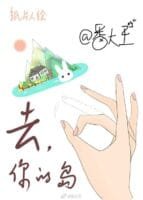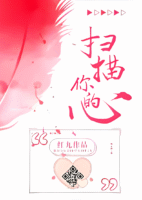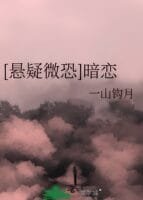Rushing Toward the Sun C05
by MarineTLChapter Five.
On March 20th, the Lead Sphere Spaceship announced the results of the vote. As Aiwen Lingling had said, the new humans were willing to cooperate with Earth and would share all the spaceship’s technology free of charge.
“Share the technology?” Earth’s residents were stunned. They had seen interviews from the Lead Sphere Spaceship, showcasing technologies far beyond what Earth could currently grasp.
“This is your home, and also a home in our history,” responded the new humans from the Lead Sphere Spaceship.
On April 25th, one month after the cooperation began, the Lead Sphere Spaceship landed in the Sahara Desert. The United Nations established the Solar Crisis Base there, ten years ahead of the original 2048 plan. The base held all archived data from Earth’s past. After a joint conference, Earth and the new humans decided to resume the former Ignite the Sun Project—humanity’s only remaining path forward.
On May 17th, two months after Aiwen Lingling had left, Luo Xiaowen continued going to and from school as usual. He now sat alone in the middle of the classroom. Every time he saw the empty seat next to him, he couldn’t help but wonder how Aiwen Lingling was doing.
He deliberately kept up with news from the solar base, imagining Aiwen Lingling was living well there. In these repetitive, idle thoughts, on the evening of the 19th at 9 PM, someone knocked at Luo Xiaowen’s door.
“Coming!” Luo Xiaowen, wearing slippers, went to answer it. He thought it was the property manager coming to read the water meter, but was stunned to see who it was.
“Luo Xiaowen, our building’s water supply is out. Can I fill a bucket at your place?” The girl at the door asked sweetly.
“Y-yes…” Luo Xiaowen stammered unusually. After two months away, Aiwen Lingling was finally back!
Aiwen Lingling transferred back to Linzhou Experimental Primary School. Luo Xiaowen had a deskmate again. Compared to before, Aiwen Lingling was livelier. She would take the initiative to help classmates sweep the floor, muster the courage to borrow an eraser, and play jump rope with others during breaks.
Aiwen Lingling was now a cheerful, normal little girl.
Luo Xiaowen and Aiwen Lingling were in the same school district. They attended elementary school, then junior high, and then high school together. Over those seven years, the solar base frequently appeared in the news. Now, twenty thousand scientists had moved into the solar base—top experts from around the world. Building on solar data, they quickly developed the solar spaceship.
In addition, joint expeditions took the Lead Sphere Spaceship to Mars and Venus. This was humanity’s first time reaching planets beyond the moon. The landscapes were beautiful, but unfit for human habitation.
In 2045, Luo Xiaowen and Aiwen Lingling graduated from high school.
“Which school do you want to apply to?” On the rooftop of their apartment building—now their secret base—Luo Xiaowen asked while eating tangyuan.
“Solar Military University,” Aiwen Lingling replied.
Three years prior, the world had established Solar Military, Solar Science and Technology, and Solar Institute of Technology—three universities focused on spaceship technology, with globally renowned experts and scholars, the highest-level institutions on Earth.
“I’m applying to Solar Institute of Technology. I don’t know if I can get in…” Luo Xiaowen had always been interested in science and technology—his parents’ hope as well.
“You definitely can!” Aiwen Lingling encouraged him earnestly. The solar schools not only had elite faculty but also the world’s highest admission thresholds.
The two submitted their applications and anxiously waited for the results.
On September 5th, both schools announced their admissions lists. They both got in.
“We made it!” Luo Xiaowen and Aiwen Lingling hugged excitedly, though a tinge of sadness followed. Solar Military was in Gansu, China, while Solar Institute of Technology was in Australia—an ocean between them.
“It’s only four years. We’ll come back for winter and summer breaks!” Aiwen Lingling insisted their friendship would remain unbreakable.
Luo Xiaowen nodded firmly.
A month later, Aiwen Lingling headed to Gansu, and Luo Xiaowen went to Australia. When they first arrived, they exchanged stories of their new lives. Earth had developed twenty solar spaceships—vastly improved over historical versions. Confident in their progress, Earth and the Lead Sphere Spaceship planned the first simulation launch in October 2046.
“Only two hours until launch. Think it’ll succeed?” On October 12, 2046, Luo Xiaowen asked while eating instant noodles. Now a sophomore, the academic pressure had taken a toll—he was noticeably thinner than in high school.
“I don’t know.” Aiwen Lingling, now eighteen, had grown more reserved than she had been in elementary school.
“Hope it does. It’s freezing here in Australia.”
Luo Xiaowen tugged his coat tighter. Though only October, Australia’s average temperature had already dropped to minus three degrees Celsius. Not just Australia—every region on Earth was now below freezing. Fortunately, preparations had begun seven years earlier, with underground cities already housing people in some areas.
After chatting a bit, they turned on Global News Network.
“Dear viewers, I am currently at the West Siberian Plain in Russia. The twenty solar spaceships are ready for launch. These ships, using the most advanced unmanned technology, will depart for the sun in thirty-eight minutes…” The middle-aged reporter passionately described the scene. Behind her stood a row of brand-new silver ships, all bearing the United Nations flag—seven years of effort from the solar base.
Luo Xiaowen and Aiwen Lingling watched in silence. Not just them—people across the globe were watching the broadcast. At 2:25 PM Beijing time, after the UN Secretary-General’s speech, all twenty ships launched simultaneously.
The solar ships soared like falcons, streaking across the sky toward the sun.
“Seven years…”
“Let’s hope it works!”
People in front of their screens were anxious. They were the continuation of Earth’s history, uncertain whether this attempt would succeed.
The solar spaceships traveled at 372,000 km/h, expected to reach the sun’s outer layer in seventeen days. Upon arrival, they would dive into the sun, activating internal nuclear fusion devices in extreme temperatures—humanity’s attempt to reignite the sun and restore its energy.
Over the following week, the world waited patiently. On October 21st, the United Nations released an announcement—
“This is a tragic update. All twenty spaceships disintegrated 30 million kilometers from the sun due to insufficient propulsion…”
Humanity fell silent. It was expected, yet still heartbreaking.
The Solar Base was not disheartened and decided to adjust its technology for a second launch.
“We failed…” In the dormitory at Solar Technology, Luo Xiaowen was feeling very low.
“Yeah.” Aiwen Lingling was in no better mood.
In history, the solar spacecraft had vaporized before even approaching the sun, just like this time. Although Luo Xiaowen and Aiwen Lingling encouraged each other, their video calls became noticeably fewer afterward. With only 24 years left until the end of Earth, they didn’t know if they could change that fate.
Over the next three years, the two of them devoted all their energy to their studies.
Three years later, Luo Xiaowen and Aiwen Lingling were admitted to the Solar Base. One became a data analyst, the other a spacecraft pilot.
“You’re learning to fly spacecraft?” Luo Xiaowen was very surprised by Aiwen Lingling’s career path.
“I majored in aerospace engineering in college. After graduation, I didn’t know what to do, so I decided to go into aerospace.” Aiwen Lingling smiled and then said, “I miss your family’s tangyuan. Once we get to the Solar Base, let’s eat tangyuan together?”
“Okay!” Back in school, the two of them had loved eating tangyuan on the rooftop of their apartment building.
Three months later, Luo Xiaowen arrived at the Solar Base in the Sahara. He thought he would see Aiwen Lingling soon, but the aerospace team and the monitoring team were in different regions.
“I specifically brought tangyuan, but now we can’t eat them.” Luo Xiaowen was a bit downcast. He had brought five bags of tangyuan this time, each tightly packed in ice.
“Let’s eat them during the New Year.” Aiwen Lingling was also a little disappointed.
Work at the Solar Base was even more intense than during their school years. Over the next five years, they poured all their energy into their jobs. In the past eight years, global governments had conducted three more test flights, all of which failed. The farthest distance a spacecraft had reached was still 1,700 kilometers short of the intended location.
By 2061, all of humanity had moved into underground cities. The Earth’s surface temperature, as in historical records, had dropped to minus thirty degrees Celsius, and the surface had become barren.
“Are you coming home for New Year this year?” In March 2061, Luo Xiaowen called Aiwen Lingling. It was their twelfth year of working, and they had only seen each other three times due to work. Both had become more mature, but their friendship remained unbreakable.
“I’m not going back. We’re testing a new batch of spacecraft.” Aiwen Lingling sounded tired.
“Is it… safe over there?” Luo Xiaowen asked after some hesitation. He had heard from other colleagues that the Solar Base was preparing a new spacecraft plan. Because of confidentiality, no one knew the details, but he had a feeling it was related to Aiwen Lingling.
“It’s safe. I’m still planning to come back next year for tangyuan.”
“That’s good.” Luo Xiaowen sighed in relief, though he still felt uneasy.
In the spring of the following year, another Solar Base flight failed. It was the ninth failure in fifteen years. This time, the spacecraft was only 6.57 million kilometers from the sun when it was struck by a meteor and crashed. If it had avoided the meteor, the mission might have succeeded.
“Sigh.”
“Another meteor strike…”
Over the years, except for the first failure due to insufficient power, the other fourteen had all failed due to meteor impacts. These meteors seemed to form a protective barrier around the sun, preventing any spacecraft from getting close.
“Do we still have a chance?” With eight years left until 2070, the world was prepared, but Earth was already facing mass extinction of humans, animals, and plants.
Amid the confusion, the Solar Base announced: the first batch of manned solar spacecraft had been successfully built. From this day forward, the Solar Base would abandon the unmanned solar spacecraft program and switch to manned missions.
The moment the Solar Base made this public, the world was shocked. Manned spacecraft required humans to complete the mission, meaning it would be a journey of no return.
Beep—beep—beep—
Luo Xiaowen saw the news and immediately called Aiwen Lingling. She was in intensive training and didn’t answer.
Luo Xiaowen called again and again. Three days later, Aiwen Lingling finally returned his call.
“You…” Luo Xiaowen had so much to say, but once he picked up the phone, he didn’t know what to say. After thinking for a while, he asked, “You’re going to pilot a manned solar spacecraft?”
“Yes.”
“Did you already plan this when you applied for aerospace engineering?”
“Yes.”
“You…” Luo Xiaowen was deeply upset. He hadn’t imagined that from the day they applied to university, Aiwen Lingling had already envisioned this mission.
“Luo Xiaowen, I’m not a prophet. I didn’t think that far ahead when I applied. I chose aerospace engineering just in case.”
“Just in case?”
“Do you know what the chip on my head is?”
“A pressure reducer?”
There had been reports in the news: new humans needed to travel in space, and due to the varying pressures, they had pressure reducers installed at birth—chips made from special materials.
“These are made from materials on the Mole Planet. They allow us to survive in space. And now, the spacecraft don’t have any more of them…”
Luo Xiaowen finally understood what Aiwen Lingling meant. They had pressure reducers, so they could pilot manned spacecraft. They were the only pilots.
“Your spacecraft…” Luo Xiaowen wasn’t sure how the other new humans felt about it.
“This was our proposal.”
The new humans had suggested manned missions twenty years ago, but Earth’s governments hadn’t agreed—until now, when they had no choice.
“When will you carry out the mission?” All the things Luo Xiaowen wanted to say turned into silence.
“I don’t know. It depends on the Base’s orders.”
“What about the first group of pilots?”
“Next spring.”
…
In the spring of 2063, the Solar Base launched twenty manned spacecraft. These pilots were the first new humans to arrive on Earth. Their average age was seventy-two. Each spacecraft carried one pilot and three Earth assistants. They were the first participants in this mission.
“It’s hard to bear.”
…
Global citizens felt heavier than ever before. There were only eighty people on those spacecraft, a small number, but each one was a living soul.
“Launch!” At 9:20, the United Nations Secretary-General gave another speech. Compared to seventeen years ago, his hair was now completely white.
Nineteen days later, footage from the global Space Station showed that a day earlier, the twenty spacecraft had plunged into the sun like moths to a flame. Bright flares flickered across the sun’s surface, then faded into calm.
“Did it succeed?”
“No one knows…”
People around the world were anxious about the outcome.
On the 20th, the Space Station transmitted precise data: although the temperature transmitted from the sun to Earth had not increased, solar activity at the point of impact had significantly intensified—this mission was a success!
“That’s amazing!” Residents erupted in cheers, then fell into somber silence. They still didn’t know how many ships would be needed, but every one of them came with sacrifice.
From 2063 to 2069, Earth launched a total of 2,700 manned spacecraft. Each launch was accompanied by global moments of silence—these were Earth’s heroes. As the ships plunged into the sun like moths to a flame, the sun’s internal temperature gradually rose, but it was still far from what was needed.
In May 2069, Earth’s surface temperature dropped to minus 100 degrees. Ordinary human activity had ceased above ground, and all that remained in sight was frozen tundra.
On May 7, Earth launched the final batch of manned spacecraft. These raised the sun’s temperature again, but as with trying to start a car, it still lacked just that extra bit of force.
“Is there still a chance?”
“I don’t know.”
Humanity wasn’t sure if they had changed history. In the original “history,” the surface temperature in 2069 was minus 270 degrees, and now it had been held to minus 100—but that was still far from survivable. More critically, only five new humans remained. Ordinary people still couldn’t withstand the extreme pressure to pilot spacecraft.
On September 17, Earth launched its final batch of ships.
At 10 a.m. on launch day at Gansu Space Base, China, Luo Xiaowen looked at Aiwen Lingling in her spacesuit, his eyes reddened, and he hugged her tightly. “I’ll miss you.”
“Live well. If the mission succeeds, bring me tangyuan for Spring Festival next year.” Aiwen Lingling hugged him back. She was now 41, her long hair cut short, appearing even more capable than before.
“Mm.” Luo Xiaowen nodded solemnly.
Aiwen Lingling smiled, then entered the Lead Sphere Spaceship.
This was Earth’s final launch. To improve the success rate, this mission included the Lead Sphere Spaceship and four manned spacecraft. The Lead Sphere’s interior had been completely emptied, now filled with nuclear fusion devices—two hundred times the amount on a normal ship.
Aiwen Lingling felt she was lucky.
Thirty-two years ago, she had arrived on Earth aboard the Lead Sphere Spaceship with her mother. Her mother had died piloting a ship nine years earlier. Now, she herself would pilot the Lead Sphere Spaceship to fulfill the dream of all new humans.
Aiwen Lingling didn’t see herself as noble, but she would never forget the fury she had felt as a three-year-old during the caged era.
They had once been a rootless people drifting among the stars. Now, she was overjoyed that they had found a root, and she was fighting to protect it.
At 10:37, the five ships launched into space.
In the underground cities, global citizens silently watched the broadcast, standing at attention in silence.
Ten years later, at the Solar Base Memorial Park, a five-year-old girl in a blue dress curiously looked up at a monument before her.
“Daddy, what are we doing?”
“Visiting a grave.”
“Whose grave are we visiting?”
“The heroes of the Solar Era.”
Luo Xiaowen placed a bowl of tangyuan at the foot of the monument and saluted silently.
Ten years ago, after the launch of the final five ships, the sun emitted a brilliant light. Citizens waited tensely for ten days before various governments released statements: the sun’s interior was expanding and generating new fluctuations. Everything indicated that the situation was turning for the better!
The world rejoiced.
People continued living in the underground cities for another five years. Surface temperatures rose slowly from minus 100 to minus 30 degrees. Some excited residents ventured out. Though still freezing, their hearts were ablaze—this was their reborn homeland.
Two years ago, surface temperatures reached minus 10 degrees. Nations lifted restrictions on the underground cities and called on citizens to begin surface reconstruction.
Luo Xiaowen had served as a monitoring officer at the Solar Base. Years of exposure to extreme cold had affected his health, and he retired early. Before retiring, he found an infant girl whose parents had died in an avalanche. After discussing with his family, he adopted her.
He named the girl Xinxin, symbolizing a world renewed.
The solar crisis had ended, but humanity never forgot the astronauts who flew into the sun. After deliberation, the United Nations built the Solar Base Memorial in Gansu, China, where 13,200 monuments to fallen space heroes now stood.
Luo Xiaowen never forgot his tangyuan promise to Aiwen Lingling. Over the years, he placed a bowl of tangyuan on the rooftop of his apartment building every year. Aiwen Lingling had loved the peanut filling—he made sure every bowl was filled with it.
“Daddy, was Aiwen Lingling a pretty big sister?” Luo Xinxin tugged on his hand and asked.
“Why do you say that?” Luo Xiaowen came back to himself.
“There are flowers blooming here.” Luo Xinxin squatted down and looked at the patch beside the monument.
The surface temperature had now risen to five degrees above zero. After thirty years of freezing, the land was still unsuitable for farming, and the world remained a barren plain. Luo Xiaowen followed Luo Xinxin’s gaze and squatted down.
A tiny red flower had sprouted from a crack beneath the monument. It was a red gladiolus, just breaking through the ground, radiant against the desolate background.
Luo Xiaowen looked up at the name “Aiwen Lingling” on the monument, his heart warm. “Yes, she was a very pretty big sister.”
The gladiolus had bloomed. Life was returning. Earth was welcoming a new spring.










0 Comments